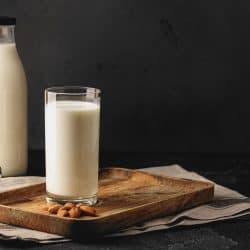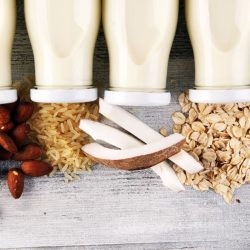From cornbread and pancakes to ranch dressing, buttermilk is used in a variety of ways. But one whiff of that funky smell can make you wrinkle your nose in distaste. Should buttermilk really smell sour? We've researched the composition of buttermilk to find the answer for you.
The distinct tangy odor unique to buttermilk is due to bacteria causing the fermentation of the lactose found in milk. This leads to the production of lactic acid, which reduces the normal pH levels of dairy. While its acidic, tart aroma is normal, buttermilk should never smell overwhelmingly sour unless it's gone bad.
So, how exactly is buttermilk made? Can it go bad? Is buttermilk just sour milk? Grab yourself a cold glass and keep reading to learn more about this popular ingredient!
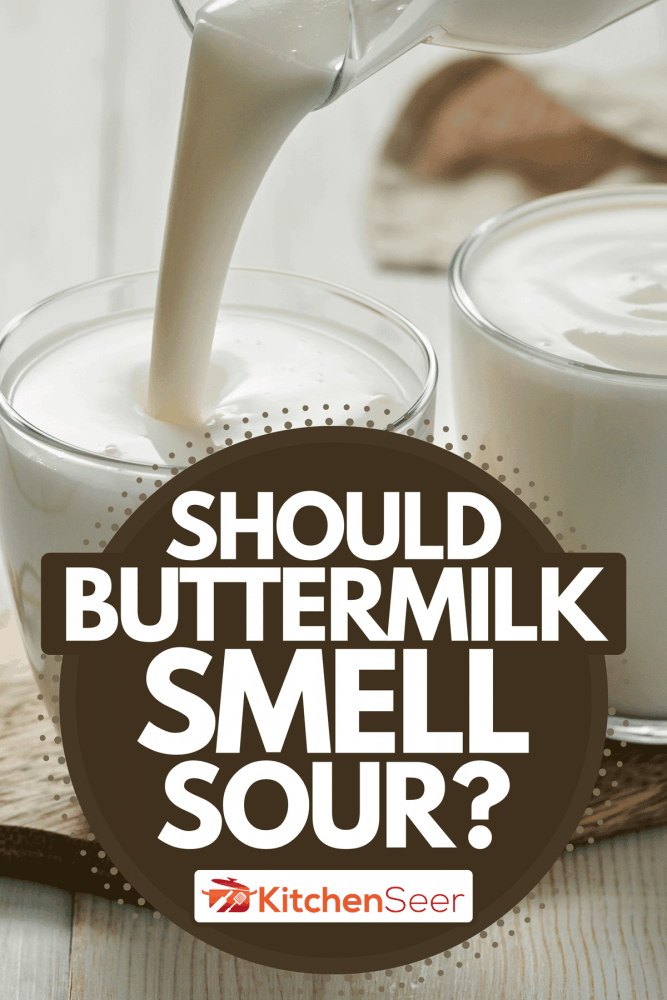
How is buttermilk produced?
True buttermilk is made not from milk but with the liquid remaining from churning butter. It naturally ferments on its own, transforming into a thick, bitter cream. The end product has a memorable pungent aroma and taste.
However, what is available in most stores today is a different animal. That carton in your fridge actually started as plain low-fat milk. Cultured bacteria are then added, and the mixture is heated through. In time, those lovely bacteria start a fermentation process by chowing down on all that lactose that the milk contained. Now lactic acid shows up and lowers the pH levels, which increases the acidity and causes that trademark smell. Starch is often added as a thickening agent.
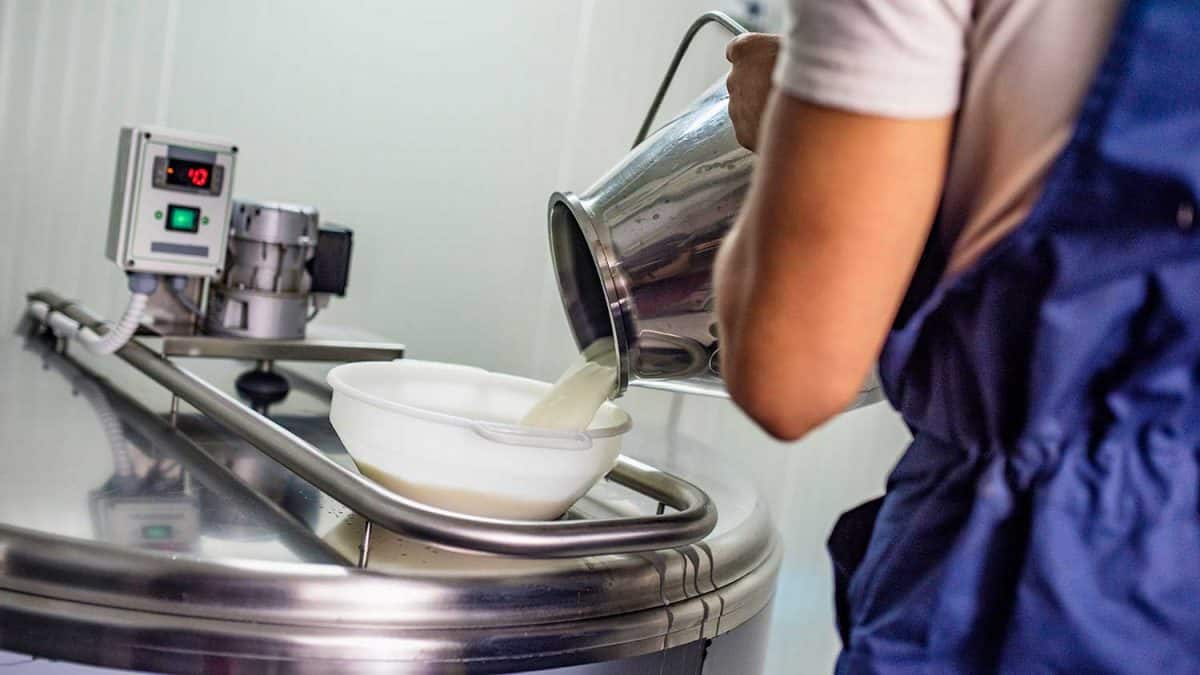
Is sour milk the same as buttermilk?
Although they do share similarities, sour milk and buttermilk are not the same. Let's take a look at what separates them.
Buttermilk
Buttermilk is an intentionally fermented product with specific bacteria and ingredients at work. It is most certainly not just milk that has turned. It is safe for consumption as long as it's kept fresh and is reasonably within its given expiration date.
Soured milk
Soured milk is exactly what it sounds like --pasteurized dairy that has crossed over to the dark side. It is curdled, past its expiration, and is now dangerous to consume. If your regular milk smells sour, throw it out!
Sour milk
Sour milk is sometimes called for in recipes, and it does not mean normal low-fat that has gone bad. This is another product that must be intentionally created. It is made by adding lemon juice or vinegar to fresh milk, which is then promptly used.
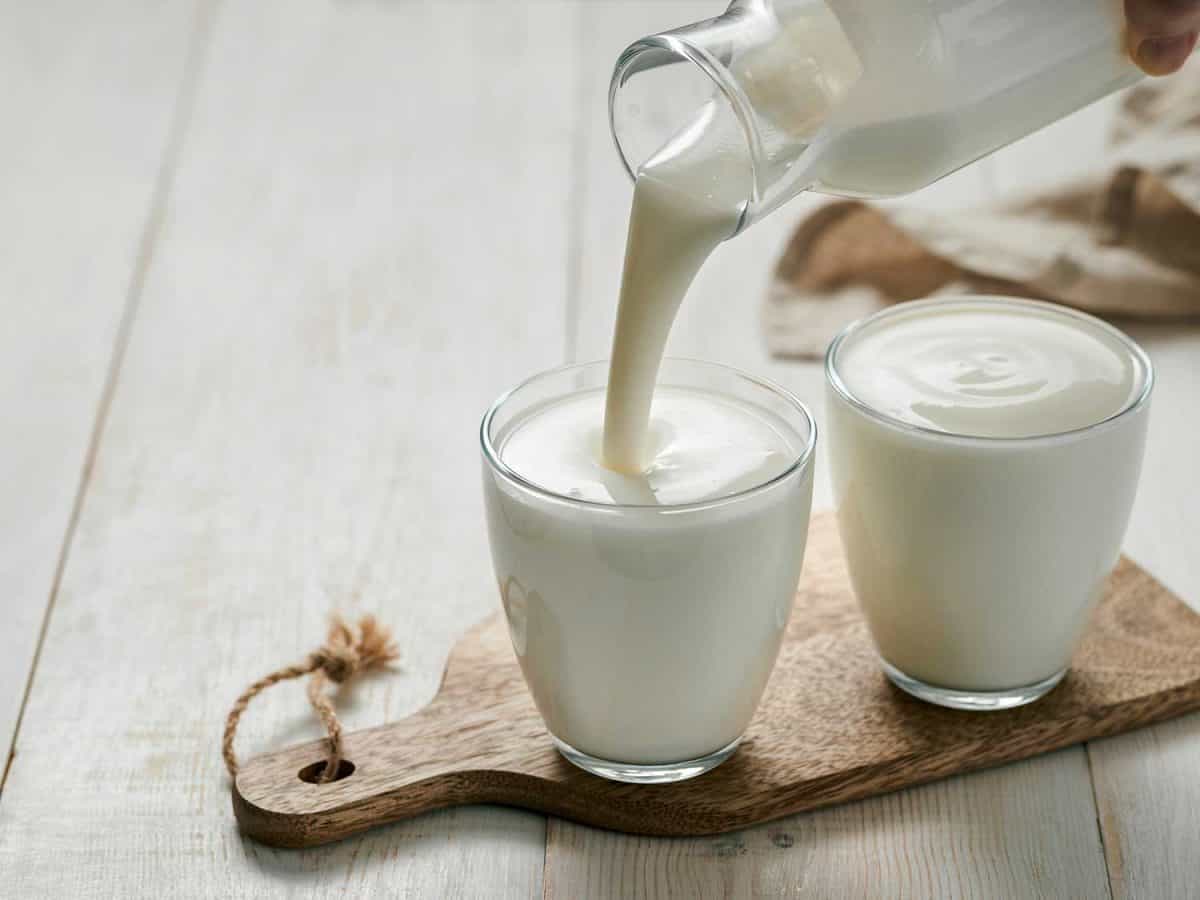
Does buttermilk go bad?
Like any type of dairy, buttermilk does eventually go bad. Bacteria continue to ferment as time goes by, and they can reach harmful levels capable of making you sick. Therefore, it's a good idea to consume your carton within three weeks of opening it. Expiration dates should be examined, as well.
Signs that your product should be thrown away:
- It has a rancid smell or taste that surpasses sour.
- There is visible mold or discoloration present.
- The texture becomes clotted and lumpy.
- It is at least seven days past the given expiration.
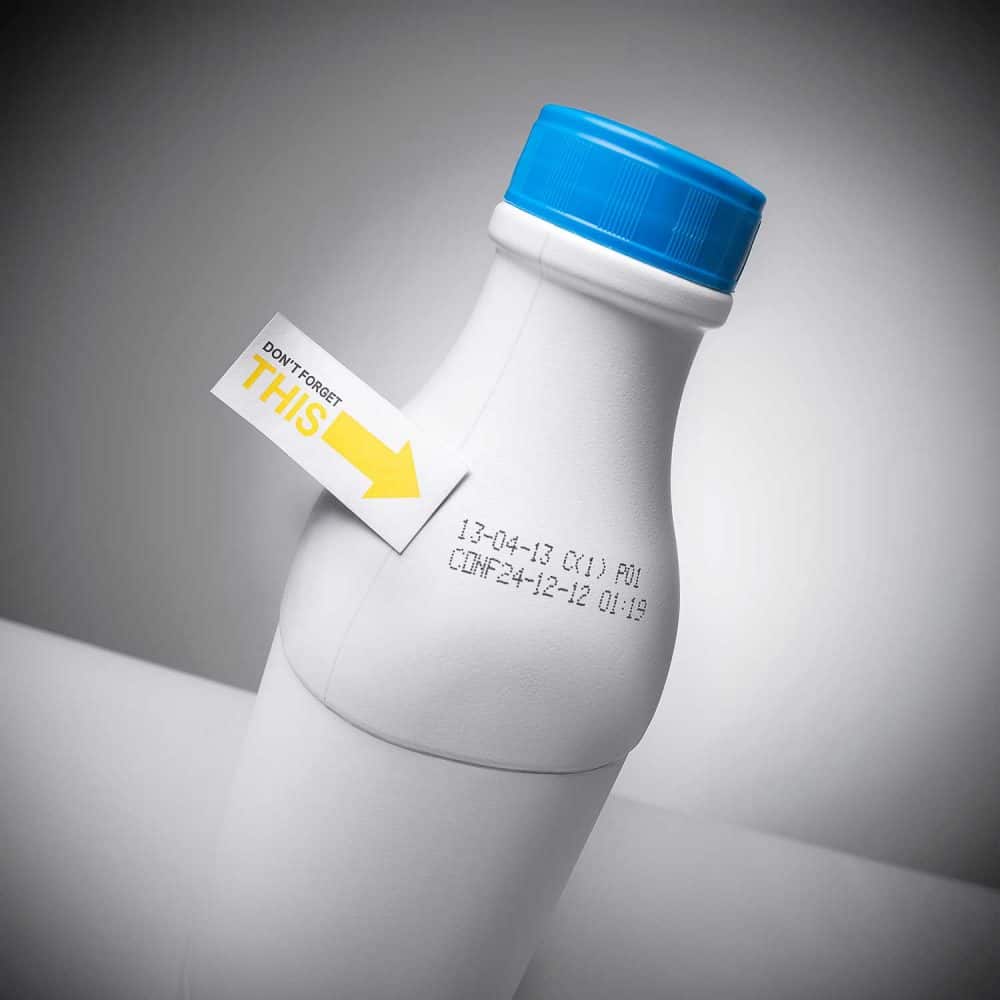
How long can buttermilk sit out?
As a safety precaution, buttermilk should always be kept refrigerated. It should never be allowed to sit at room temperature for more than two hours. This changes to one hour if the temperature is over 90 degrees F. You don't want to risk drinking or cooking with a ruined product. Food poisoning is not an exciting experience.
Can you freeze buttermilk?
Freezing your leftover buttermilk is a great way to reduce food waste and save some money. It can safely last up to three months if properly frozen. A great method is to use the ice cube trays or muffin pans you already have at home. We'll explain how!
Measure
Since most recipes call for around a cup or less of buttermilk, it's really convenient not to be forced to thaw out half a jug each time. Grab your muffin or ice containers and measure how much liquid each compartment will hold. Write the number down where you won't lose it.
Fill and freeze
Fill up all the trays you need and throw them into the freezer. Once everything is fully frozen, pop all of your new cubes into freezer bags for safe storage. Eliminate as much air from the baggie as possible before sealing. Don't forget to label them with contents, date, and the measurement you noted earlier.
Defrost
When you're ready to make another batch of those wonderful buttermilk biscuits, simply grab the number of cubes you need. Let them thaw in the fridge overnight. If you're creating a hot dish or soup, they can be dropped in frozen. For those who needed dinner to be done two hours ago, you can also microwave them. Nuke for ten seconds at a time until thawed.
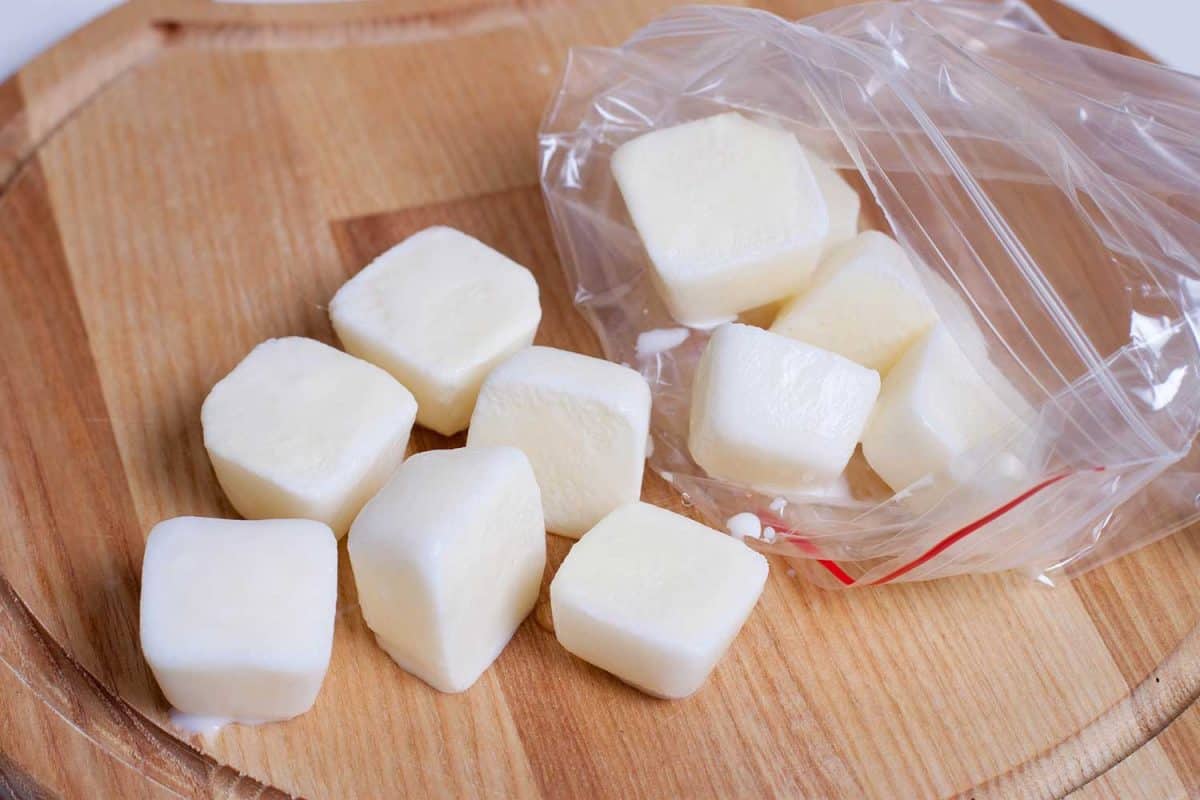
What can you do with expired buttermilk?
Because this particular dairy product is so acidic, it has a reasonably long shelf life. As long as it has been kept properly refrigerated, buttermilk can last up to seven days after its labeled expiration. If it shows any signs of spoilage that we mentioned earlier, throw it out. If it's still viable, it can be used in all the same recipes as before! Or, if you'd rather, this is a last-chance opportunity to get it in the freezer for preservation.
Is powdered buttermilk a good option?
Powdered buttermilk is a marvelous concoction if you don't want to worry as much about spoilage. It's great for anyone that only cooks recipes with this ingredient semi-regularly. Not only is it cheaper than liquid cartons, but it has a shelf life of three to five years! This product is simply dehydrated buttermilk. All you have to do is add water! Click here to see it on Amazon.
Does buttermilk have any health benefits?
Buttermilk is loaded with vital probiotics, vitamins, and minerals. In particular, it contains vitamins A and D, potassium, calcium, riboflavin, and even phosphorous. Probiotics help keep the beneficial bacteria in your gut happy so you can digest better. Vitamin A is awesome for your eyes, and D is crucial for bones and teeth.
In addition, the extra protein it offers assists your body in maintaining healthy skin, bones, and muscles. Buttermilk has also been known to help lower cholesterol levels when taken in small daily amounts. Since high cholesterol is linked to strokes and heart disease, this is a great quality for a food to possess.
While it remains a dairy product, some lactose-intolerant people find buttermilk to be a tolerable replacement for normal milk. This is due to the bacteria eating away at the lactose, lowering its presence. It's good to have potential options; although, it may or may not work for you.
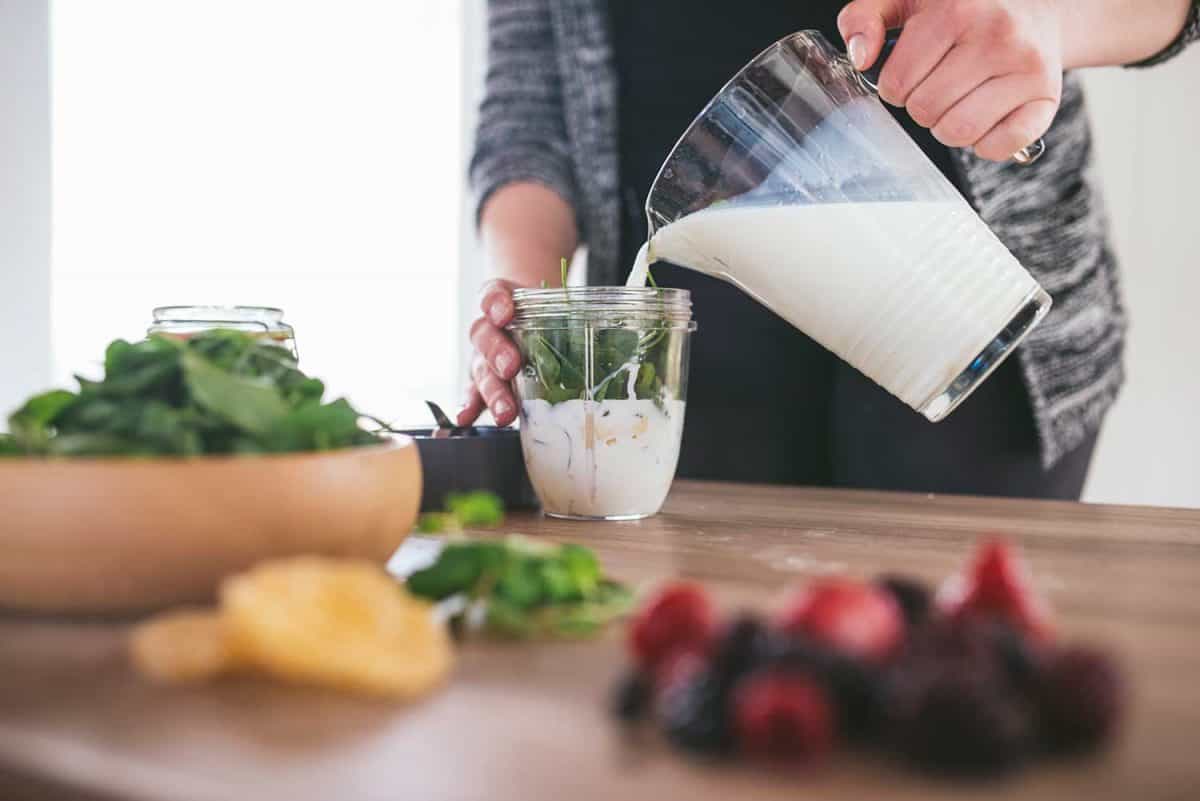
Time to wrap things up
We've established that buttermilk's sharp aroma is caused by the lactose-devouring bacteria it contains. While it is slightly sour, it should never smell rancid. Don't let your carton sit outside of the fridge, and be sure to freeze any leftovers for future use. If you need something with a long shelf life, try the powdered version of buttermilk. And remember: if in doubt, throw it out!
What To Substitute For Milk In Mashed Potatoes
25 Types Of Baking Dishes You Need In Your Kitchen


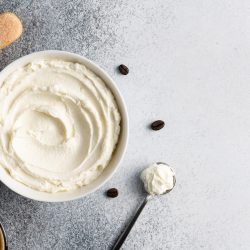
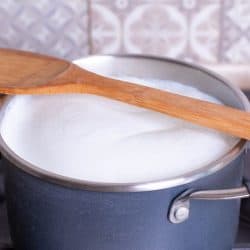
![Bottle of almond milk surrounded by almonds, Can You Leave Almond Milk Out Overnight? [And Does It Expire?]](https://kitchenseer.com/wp-content/uploads/2022/05/A-bottle-of-almond-milk-surrounded-by-almonds-250x250.jpg)

